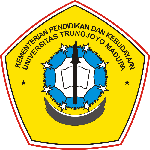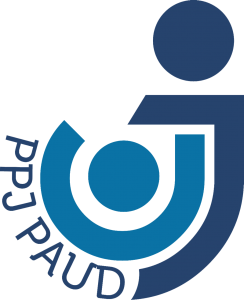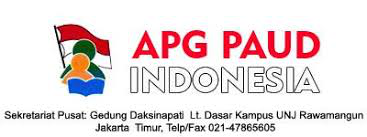Efektivitas Socio Dramatic Play untuk Meningkatkan Kemandirian pada Anak Usia Prasekolah
Abstract
Keywords
Full Text:
PDFReferences
Calabrasse, N.; Field.; & Karen. D. (2001). Developing quality sociodramatic play for young children. Journal Of Education Vol. 123 (3).
Dhamayanthi, M. (2010). Psikologi bermain anak usia dini. Jakarta: Kencana
Gonzales, J.; & Mena. (2010). Perilaku Negatif Dan Eksplorasi Sebagai Tanda-Tanda Mengembangkan Otonomi. Singapore: Pearson Allyn Bacon Prectice Hall.
Hidayati, N. (2010). Bermain khayal untuk mengembangakan sosioemosi anak-anak prasekolah. Insan. Vol. 12 (02).
Hidayat, A,. (2008). Pengantar Ilmu Kesehatan Anak untuk Pendidikan Kebidanan. Jakarta: Salemba Medika.
Hurlock, E.B. (1997). Perkembangan Anak (Jilid I). Jakarta: Erlangga
Marnat, G.G. (2010). Handbook of Psichological Asssessment. Yogyakarta: Pustaka Pelajar
Matthews, S.B. (2008). The relationship among self regulation, sociodramatic play and preschoolers’ readiness for kindergarten. Counseling Psychology Dissertation. Northeasthern University.
Putra, K.; & Miftakhul.( 2013). Perkembangan Kemandirian Anak Usia Dini (Usia 4-6 tahun) di Taman Kanak-Kanak Assalam Surabaya. Vol: 01 (03). http ejournal unesa.ac.id.
Santrock. J. W. (2002).. Life-Span Development: Perkembangan Masa Hidup.(edisi kelima). Jakarta: Erlangga
Syafaruddin. (2012). Pendidikan dan Pemberdayaan Masyarakat (esay-esay pemikiran pemberdayaan dari aspek manejerial. Kecerdasan dan kepribadian). Medan: Perdana Publishing.
Seniati, L.; Yulianto, A.; & Setiadi, B.N. (2005). Psikologi Eksperimen. Jakarta: PT. Indeks
Theresa, L.S.A. (2007). The effects of an enriched environment and teacher intervention on the dramatic and sociodramatic play of children. Durham theses, Durham University. Available at Durham.E-Theses (Online), http://etheses.dur.ac.uk/2482, diakses 2 Februari 2014).
DOI: https://doi.org/10.21107/pgpaudtrunojoyo.v1i1.3546
Refbacks
- There are currently no refbacks.
Copyright (c) 2014 Nadya Comanechie E L

This work is licensed under a Creative Commons Attribution 4.0 International License.
Diterbitkan oleh:

Program Studi Pendidikan Guru Pendidikan Anak Usia Dini, Fakultas Ilmu Pendidikan
Universitas Trunojoyo Madura.
Jl. Raya Telang PO BOX 2 Kamal, Bangkalan, Jawa Timur 69162
Telp. (031)3014239/ Fax. (031)3011506









